Take Back Control of Your Legal & Financial Sovereignty
Become a Secured Party/Creditor & Establish Your Private Trust with SPC University.
Are you ready to step out of the public matrix and into the realm of true privacy and protection?
At SPC University, we guide you through the exact legal processes to
- Reclaim your status as a Secured Party/ Creditor (SPC)
- Separate your assets from your personal liability through a Private Trust
- Protect your wealth, your rights, and your legacy—privately and powerfully
- Step-by-step guided process — even if you're brand new
- Real education, not hype — founded on law, contracts, and due process
- Lifetime access & support — you're not alone on this journey
- Proven results — our clients consistently regain control over their affairs

Why the SPC Process?
Most people unknowingly operate under a system where they are seen as corporate entities. By becoming a Secured Party Creditor, you:

Assert your legal status outside the jurisdiction of commercial contracts

Gain more control over interactions with banks, courts, and government agencies

Properly file your UCC-1 and navigate the redemption process with expert guidance

Why a Private Trust?
In today’s world, privacy is power. A properly structured Private Trust lets you:
- Shield your assets from lawsuits, taxes, and probate
- Maintain total control without public registration
- Ensure intergenerational wealth with maximum legal protection
Why SPC University Works

Proven Systems
Learn what actually works in eCommerce, digital marketing, personal branding & more.

No Fluff, Just Execution
Actionable lessons that get straight to the point so you can start making money now.

Support That Scales With You
Get access to expert coaches, an engaged community, and weekly Q&As to keep you moving.

Lifetime Access
Revisit any lesson, anytime, as your business grows.
Whether you're launching your first side hustle or scaling to 6+ figures, our step-by-step programs are designed by top-performing entrepreneurs who walk the talk
- This Is About More Than Paperwork — It's About Power.
- Join thousands who have already made the shift from public to private.
- Claim your freedom. Protect your family. Leave a legacy.

What are Public and Private Rights?
In the context of the U.S. Constitution, public and private rights represent different aspects of legal protection and government power:
🔹 Public Rights:
These are rights held by the public as a whole, often involving the relationship between individuals and the government. They typically arise in matters affecting society broadly, such as:
Taxation
Immigration and naturalization
Regulation of interstate commerce
Public land disputes
In public rights cases, the government acts in its sovereign capacity. These disputes may be resolved in administrative courts or through legislative processes, and the Constitution allows for flexibility in how they’re adjudicated.
🔹 Private Rights:
These are individual legal rights rooted in common law or constitutional protections. They typically involve disputes between private individuals or between an individual and the government when the government is acting not as a sovereign but more like a private party. Examples include:
Property rights
Contract disputes
Tort claims (e.g., injury cases)
Constitutional protections (e.g., First Amendment rights)
Private rights must generally be heard in an Article III court (with a federal judge who has life tenure and salary protections), ensuring full constitutional protections like due process.
💡 Key Difference:
The key distinction lies in who the right belongs to and how it’s enforced. Public rights can be addressed through political or administrative processes, while private rights often require judicial determination with full constitutional safeguards.

How the Social Security Number ties you into the Federal System
- The SSN is issued by the Social Security Administration (SSA), a federal agency.
- Its primary purpose is to track earnings for Social Security and other federal benefits.
- By applying for and receiving an SSN, an individual voluntarily enters into a legal and administrative relationship with the federal government.
2. Participation in Federal Programs
- Having an SSN typically means the individual is part of federal programs such as Social Security retirement, disability, Medicare, and federal taxation (IRS).
- This creates ongoing interactions with federal systems, reinforcing the individual’s connection (or “contacts”) with the federal government.
3. Taxation and Legal Jurisdiction
- The Internal Revenue Service (IRS) uses SSNs to track individuals for federal income tax purposes.
- Filing a tax return or receiving federal benefits under an SSN signifies consensual engagement with federal law and regulations.
4. Legal Concept of “Minimum Contacts”
- In legal theory (especially under due process and personal jurisdiction doctrines), “minimum contacts” refers to sufficient ties to justify a government’s exercise of jurisdiction over a person.
- Holding an SSN implies the person has knowingly established legal and economic connections with the federal government—often sufficient to satisfy minimum contacts in federal matters.


About Us
Yusef El, the founder, CEO, and master teacher at Secured Party/Creditor (SPC) University, has been imparting knowledge about business trust law and the secured party process to audiences nationwide for over a decade. In 2018, he introduced SPC University’s online learning platform, which offers self-paced courses in common law and provides access to weekly curated webinars. SPC University stands as a top-tier educational platform, encouraging its members to think independently and take private action.
SPC University – Frequently Asked Questions
Most frequent questions and answers
SPC University is an educational platform that guides individuals through legal processes to reclaim their status as Secured Party/ Creditors (SPC), separate personal assets from public liabilities, and transition from the public to the private realm.
Members have access to a wealth of resources, including:
Instructional videos
Live and archived webinars
Self-paced courses
A comprehensive PDF library
A resource center
The Currency Circulator tool
These materials cover topics such as financial debts, banking issues, fines, court appointments, driving offenses, taxation obligations, and understanding one’s inherent rights.
To become a member, visit the Member registration page and complete the sign-up process. The Membership is currently offered at a discounted rate of $49.99 per month, down from the regular price of $119.
SPC University provides non-tangible, irrevocable digital products. Therefore, once an order is confirmed and the product is delivered, refunds are not issued. This policy is in place because it’s not possible to revoke access to digital files once provided.
Cancellations are handled automatically through PayPal. If you cancel your subscription via your PayPal account, SPC University will be notified through the PayPal IPN service, and your membership will be updated accordingly.
For any inquiries or support, you can reach out to SPC University via:
Email: support@spcuniversity.com
Phone: (404) 981-5332
Mailing Address: 2825 Oak Lawn Ave, #192122, Dallas, Texas 75217
For more details, visit the Contact Us page.
Yes, SPC University has minimum browser requirements to ensure optimal performance. Specific details can be found on the Minimum Browser Requirements page.
SPC University provides detailed information on various policies, including:
These documents outline the terms and conditions, privacy practices, refund procedures, and cancellation processes.
